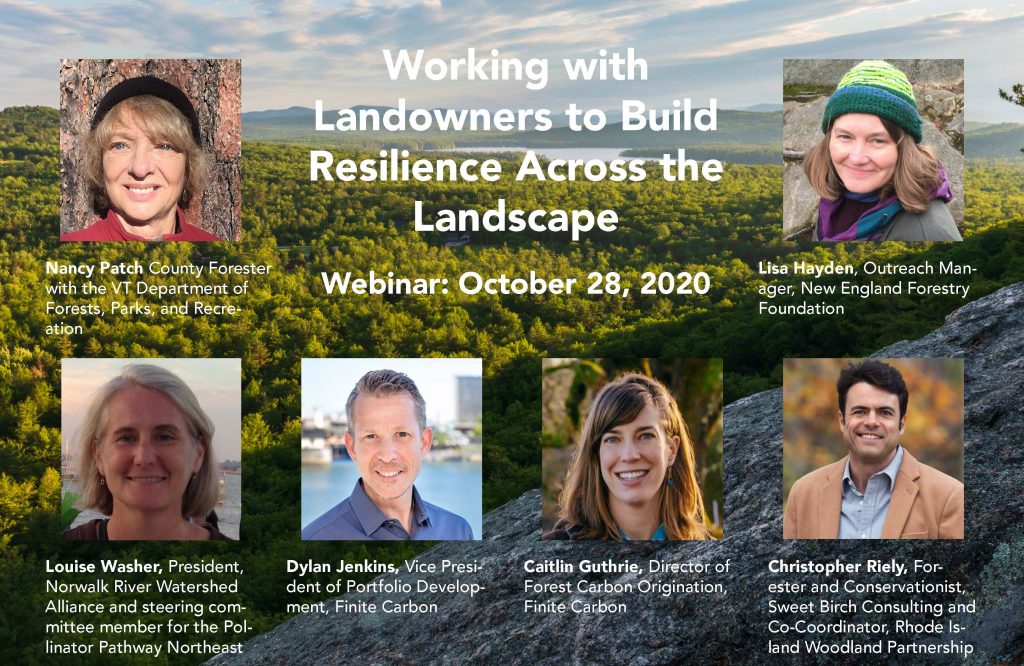At the end of October, the annual RCP Network Gathering moved online with “Working with Landowners to Build Resilience Across the Landscape,” the first in a series of webinars focused on “Resilient Regions and Communities.” About 90 people participated in the session which identified strategies to connect with landowners.
The webinar featured three, fifteen-minute presentations moderated by Nancy Patch, County Forester, VT Department of Forest, Parks, and Recreation. Each was followed by a short Q&A. (Note that the webinar conversation begins at about 2:15 in the recording.)

The first presentation focused on outreach strategies to engage landowners. Lisa Hayden, Outreach Manager, New England Forestry Foundation and Christopher Riely, Forester and Conservationist, Sweet Birch Consulting and Co-Coordinator, Rhode Island Woodland Partnership discussed a range of approaches. Lisa looked for new opportunities to engage landowners in the MassConn region in light of the pandemic, including increasing informational materials and forming new groups to connect within social distancing guidelines.
Riely focused on a case study of how Sweet Birch Consulting engaged landowners in peer-to-peer learning about oak forest resiliency against Gypsy Moth infestations. He offered land owners new tools and useful, in-depth information that also opened lines of communications between his organization and the landowners.
Next up was a discussion of how carbon offsets can be used to both educate and engage landowners. Caitlin Guthrie and Dylan Jenkins from Finite Carbon discussed how carbon offsets can be a valuable asset to landowners that might encourage them to permanently conserve their property. Land trusts and other conservation organizations can educate land owners on the possibility of creating carbon offsets with their forested land, encouraging a partnership focused on conservation.
The final presentation focused on the success of the Pollinator Pathway program in engaging local landowners in effective stewardship of their land. Louise Washer, President of the Norwalk River Watershed Association, shared how towns across the region have begun to form groups focused on increasing pollinator habitat by planting native, pollinator-friendly plants and identifying new ways to conserve and steward the landscape.
Learn more about future webinars and the virtual Regional Conservation Partnership Network Gathering on November 19, here.